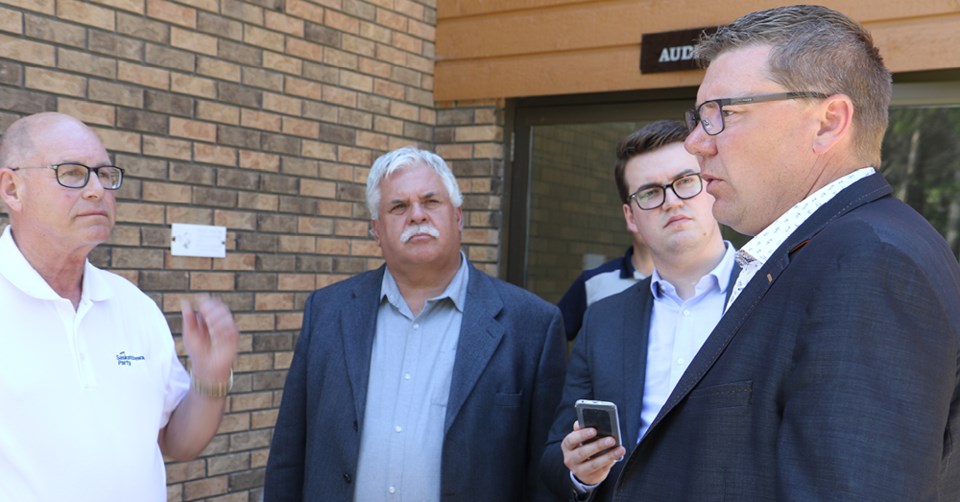NIPAWIN — Economic opportunity and rural crime were high on the Saskatchewan Party’s mind as their 46 MLAs met for a caucus retreat in Nipawin.
Scott Moe, the premier of Saskatchewan, said the caucus spent a lot of time June 19 discussing how the province could promote value-added agricultural processors like Bunge, noting that his government has created a tax incentive for those businesses.
He added there was discussions about opportunities in other industries as well.
“How do we best continue to stand for those industries that are the source point of our wealth in this province, the sources of many of our employment opportunities in this province,” he said, “understanding they have some headwinds coming at them.”
One of those headwinds is from the federal government, which is planning to impose a carbon tax on the province after the province refused to come up with an environmental plan that includes a price on carbon emissions. The province is taking the federal government to court over the issue.
The other headwind is the uncertainty with NAFTA. In Saskatchewan, 85 per cent of its imports come from the U.S., while 55 per cent of its exports go there.
“It’s of vital importance we have that trade relationship with countries all over the world – we deal with 155 of them – but most importantly with the United States of America,” Moe said.
Fred Bradshaw, the MLA for Carrot River Valley, guided Jeremy Harrison, the minister of trade and export, to the Weyerhaeuser OSB plant in Hudson Bay and the Edgewood sawmill in Carrot River, asking them what kind of problems they were facing. A big topic during those tours were highways, shipping and rail.
“As a government we’re trying to work on various different ways we can assist industries like that and it goes all of the way across the board,” the MLA said. “What’s good for any industry within the province of Saskatchewan is good for all of Saskatchewan and good for all of Canada.”
Also discussed was the country’s equalization program, with Moe proposing a change to how the federal government calculates how much it gives each province. The federal government has renewed the current formula so it stays until 2024.
Regarding rural crime, Moe said the new Provincial Response Team is coming into force.
“We want to be sure we’re identifying what kind of an impact that has and what our next steps will be,” he said. “We’ve always said this is the step towards a broader solution of not just detail with the symptom of rural crime but dealing with the sources of rural crime.”
Moe said the government wants to communicate with people as to what effect the Provincial Response Team is having before the province goes ahead with any future steps.




